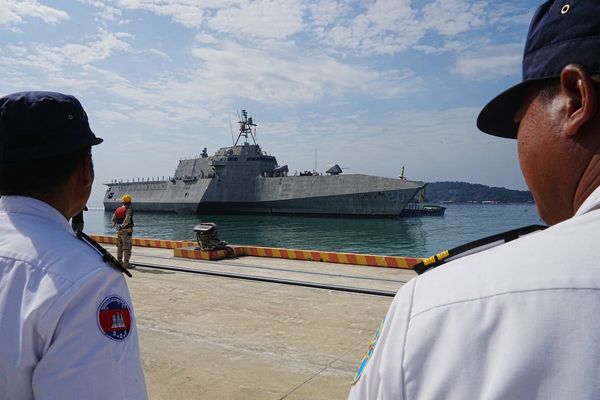
Chairs stacked on tables, curtains drawn and a giant ‘takeaway only’ scribbled across the chalkboard that would usually announce the night’s delicious specials.
No, it’s not closing time – it’s only 7pm. But the restaurateur running the place on his own does worry his days in business are numbered.
It’s a familiar story all around Australia as the Omicron wave surges.
Wait staff are ringing in sick after catching COVID-19.
Customers are calling to cancel bookings because they are also ill or sick with worry they may be at risk if they go out for dinner.
Data shows as many as one in five diners is cancelling a reservation because of coronavirus concerns.
Their fears are based on facts – after all, Australia recorded its deadliest day in the pandemic on Wednesday.
But at a time when the tally of COVID cases has hit new heights, financial support has dropped.
The decline in government support has left hospitality venues facing what some business owners have called a “disaster”.
‘Ghost town’: Restaurants left empty
Sydney restaurant manager Scott said that in one day alone, 68 diners had cancelled reservations.
But now “bookings aren’t even coming in”.
“There’s just no one in the city. It’s a ghost town,” Scott said.
Restaurant and Catering Australia CEO Wes Lambert said a survey of the organisation’s NSW members showed the average business’ revenue was down by up to 60 per cent since the start of the year.
With more than 100 COVID-19 deaths reported in NSW in the past five days, Premier Dominic Perrottet said the state has to push through and get on with life.
But how can business owners get on with life when they have no workers?
And what should they do if no one shows up to eat the food the chefs have bought and cooked?
Mr Lambert said a balance was needed between the policies relating to living with COVID-19, and making they didn’t come at the expense of businesses and consumer confidence.
Hospitality guest experience and retention platform SevenRooms general manager APAC Paul Hadida said the recent cancellations were much lower than in 2020, as people were going out and eager to make up for the many dinners they missed during lockdowns.
But at the beginning of the pandemic, businesses that faced declining customer numbers could rely on government stimulus and freezes on some expenses.
Mr Lambert said the lack of financial support available for businesses in most states made the Omicron wave the worst so far for the industry.
‘Absolute disaster’: No customers or financial support
Alfredo, owner of Sydney’s Alfredo Authentic Italian Restaurant & Cocktail Bar, said running the business during the Omicron wave had been a “disaster”.
He said it was his worst time in his 40 years in hospitality.
Although the Pandemic Disaster Payment has been introduced to alleviate some financial woes for close contacts and COVID-positive Australians, support for businesses varies from state to state.
Alfredo has been forced to wait until the night before a shift to confirm with staff whether they have work the next day.
He is dipping into his savings to help his business pull through.
“But it’s not good because I’m an older person – I’m 77 – and that’s an issue,” he said.
“The first one [Sydney lockdown] was fantastic – we get many facilitations like no pay the bank, no pay the rent, and the staff get a lot of support.
“Now with Omicron, [it’s] a disaster, an absolute disaster.”







